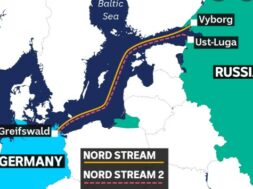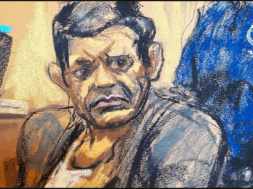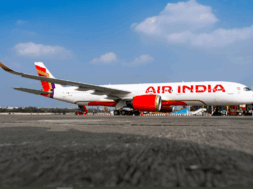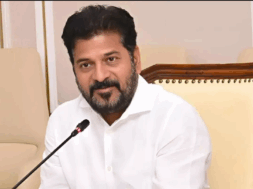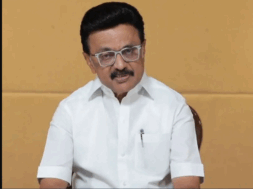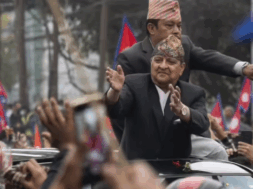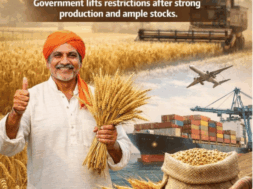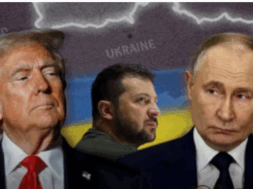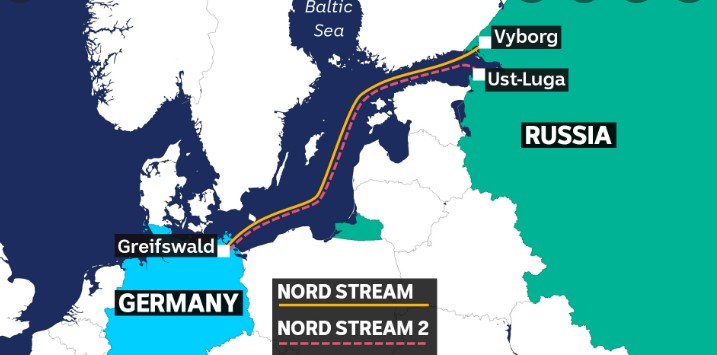
Roving Periscope: Reduction in Russian gas supply shudders Europe ahead of winter
Virendra Pandit
New Delhi: As its inconclusive Ukraine invasion entered the 152nd day on Tuesday, an angry Russia has reduced natural gas supply to Europe for its continued support to Kyiv and as a protest against western anti-Moscow sanctions, which may freeze the Continent ahead of the approaching winter.
On Monday, Russia tightened its gas squeeze on Europe when the supplier Gazprom, claiming annual maintenance problems, said supplies through the Nord Stream 1 pipeline to Germany, Europe’s largest and the world’s fourth mightiest economy, would drop to just 20 percent of capacity.
Gazprom said gas flows would be reduced to a mere 33 million cubic meters daily from 0400 GMT on Wednesday (July 27). It is a halving of the current, already reduced level. The media reported that the company needed to halt the operation of a Siemens gas turbine at a compressor station on instructions from an industry watchdog.
But Germany said it saw no technical reason for the latest reduction, as Russia and the West exchange economic blows in response to what Moscow claims its “special military operation” in Ukraine, which started on February 24.
The Dutch front-month gas contract, the European benchmark, closed 9.95 percent higher on news of the latest blow to Nord Stream 1. The pipeline, with a capacity of 55 billion cubic meters annually, is the most prominent Russian gas link to Europe.
The European Union (EU) has repeatedly accused Russia of resorting to the weaponization of natural gas and energy blackmail. But the Kremlin says “maintenance issues” and the effect of Western sanctions have caused the shortfalls.
European politicians said Russia could cut off gas flows this winter, thrust Germany into recession, and lead to soaring prices for consumers already grappling with higher prices for food and energy.
Germany was forced last week to announce a USD 15 billion bailout of Uniper, its biggest company importing gas from Russia.
Earlier this month, Russian President Vladimir Putin warned the West that continued sanctions against Moscow triggered catastrophic global energy price rises for consumers.
Russia had already cut flows through Nord Stream 1 to 40 percent of capacity in June, citing the delayed return of a turbine that Siemens Energy was servicing in Canada, a claim Germany rejected as spurious.
After that, Moscow shut Nord Stream 1 for ten days of ‘annual maintenance’ this month, restarting it last Thursday at 40 percent of normal levels.
Gazprom claims the service documents received from Siemens Energy and Canada “do not remove the previously identified risks and raise additional questions,” a euphemism to continue the gas cut.
There also remained questions over the EU and UK sanctions, “the resolution of which is important for the delivery of the engine to Russia and the urgent overhaul of other gas turbine engines for the Portovaya compressor station.” This is seen as Russia warning the EU and London to end sanctions if they wanted the gas supply to Europe restored.
Siemens Energy said the transport of the serviced turbine to Russia could start immediately, and the ball was in Gazprom’s court.
“The German authorities provided Siemens Energy with all the documents for exporting the turbine to Russia at the beginning of last week. Gazprom is aware of this,” it said.
“What is missing, however, are the customs documents for import to Russia. Gazprom, as the customer, is required to provide those.”
The German company said it saw no link between the turbine issue and the gas cuts implemented or announced by Gazprom.
The Kremlin said Moscow did not want a complete stoppage of Russian gas supplies to Europe. It struggles to fill its underground storage before the demand peaks in winter.
The disruption has raised the risk of gas rationing on the Continent, with the EU proposing to member states last week they cut gas use by 15 percent between August and March, compared with the same period of previous years.
After Saudi Arabia, Russia is the world’s second-largest oil exporter and the world’s largest exporter of natural gas. Europe imports about 40 percent of its gas and 30 percent of its oil from Russia.
